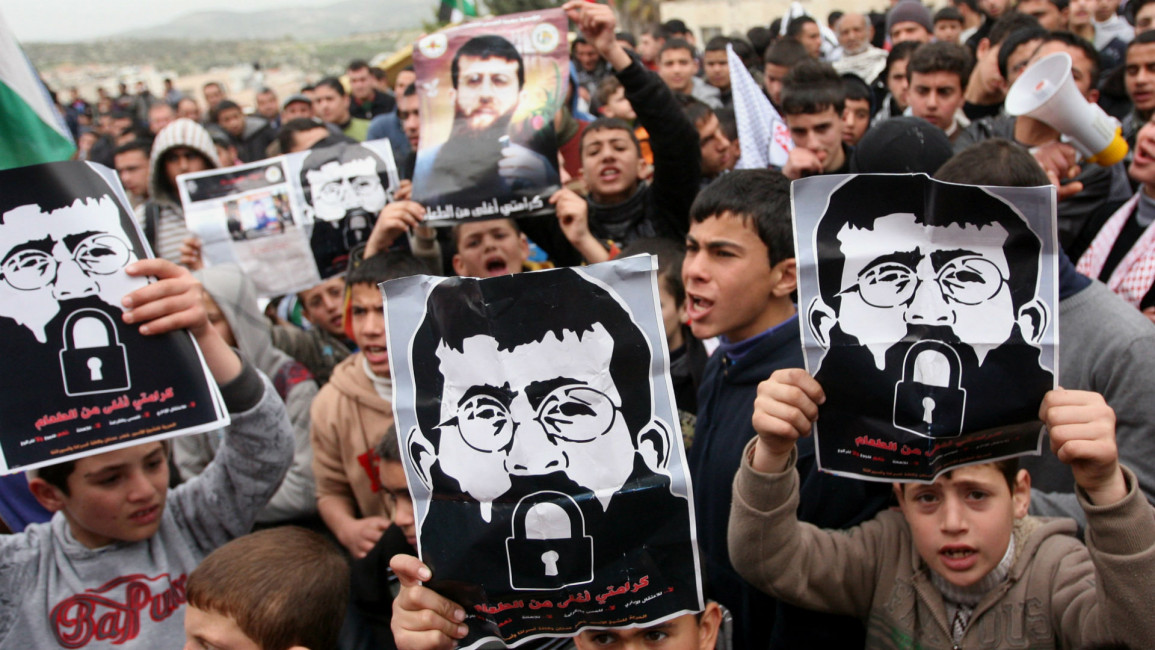
Khader Adnan and Israel's policy of administrative detention

The death of Palestinian prisoner Khader Adnan in an Israeli jail on 2 May 2023 has brought further scrutiny to a notorious Israeli policy routinely used against Palestinians living under military occupation: administrative detention.
Under the policy, described as “anathema” to any democratic society that subscribes to the rule of law, Israel has imprisoned up to 50,000 Palestinians since 1967.
The practice dates back to the British Mandate when colonial authorities adopted the Emergency Defence Regulations of 1945 imposing martial law in Mandatory Palestine. These regulations were then incorporated into Israeli law.
"The death of Palestinian prisoner Khader Adnan has brought further scrutiny to a notorious Israeli policy routinely used against Palestinians: administrative detention"
Under the policy, Israeli military commanders can issue prolonged detention orders against Palestinians without trial or charge for periods of six months, which can be renewed indefinitely.
Detainees are held on the basis of secret evidence which is never revealed to them or their legal representatives.
Usually issued for reasons of national security, administrative detention orders have targeted Palestinians from all backgrounds, including activists, journalists, students, and politicians.
Salah Hammouri, a French-Palestinian lawyer and human rights defender, was held in administrative detention from 7 March 2022 before being deported in December of the same year.
The use of administrative detention has fluctuated over time, but HaMoked, an Israeli rights group, says Israel is currently holding over 1,000 Palestinian detainees without charge or trial, the highest number since 2003.
Khader Adnan had been arrested 13 times since 2004 due to his affiliation with the Palestinian Islamic Jihad movement and spent eight years in jail – six of which he was held under administrative detention.
He had gone on hunger strike five times to protest his detention without trial or charge under Israel’s military system.
Following his death after 87 days on hunger strike, Amnesty International said that Israeli authorities had refused him specialised care in a civilian hospital and “left him to die alone in his cell”. He had never been tried or convicted for any acts of violence.
|
|
The widespread use of the policy has affected thousands of Palestinians.
Areen al-Za'neen from occupied East Jerusalem spent 14 months in an Israeli prison in the Naqab (Negev) before being released on 30 April 2023.
"I had no understanding of the meaning of administrative detention," he told The New Arab. Areen has spent nearly three years in Israeli prisons over different periods.
In March 2022, he was sentenced to six months in administrative detention. Then, as the term neared expiration, the Israeli authorities renewed it for another three months, then a further three months, and finally two months more.
"Israel is currently holding over 1,000 Palestinian detainees without charge or trial, the highest number since 2003"
"They said they had secret material," Areen said, adding "he felt he was not dealing with a government but mafia thugs".
Immediately after his release on 30 April 2023, Areen was approached and apprehended outside the prison by Israeli security agents and brought for interrogation.
"They threatened me with administrative arrest another time," he said. “Based on what? Based on the whim of Israeli secret service agents."
When asked about his plans now, Areen said that administrative detention creates uncertainty about the future.
"I'd like to get married... to find employment... but the multiple arrests made it difficult to move ahead. Employers are turning me down because of it," he said.
UN officials have often criticised this form of detention. Most recently, Farhan Haq, the spokesperson for the UN Secretary-General, urged Israel to "end the practice" of administrative detention following Khader Adnan’s death.
"All those held in administrative detention should be promptly charged and tried in a court of law or released without delay," he said.
"Systematic and widespread willful deprivation of protected persons' rights to fair trial amounts to a war crime under the Rome Statute, prosecutable by the ICC and under universal jurisdiction"
Francesca Albanese, a Special Rapporteur on the situation of human rights in the occupied Palestinian territories, has condemned the Israeli policy.
"Israel's practice of administrative detention... falls outside the perimeter of what is permitted under international law," she told The New Arab.
While international law allows administrative detention in exceptional circumstances, the UN official stressed that vital security concerns do not last in perpetuity, as Israel often portrays.
"Systematic and widespread willful deprivation of protected persons' rights to fair trial amounts to a war crime under the Rome Statute, prosecutable by the ICC and under universal jurisdiction," she said.
Ibrahim Husseini is The New Arab's correspondent based in East Jerusalem.
Follow him on Twitter: @husseiniibrahim



